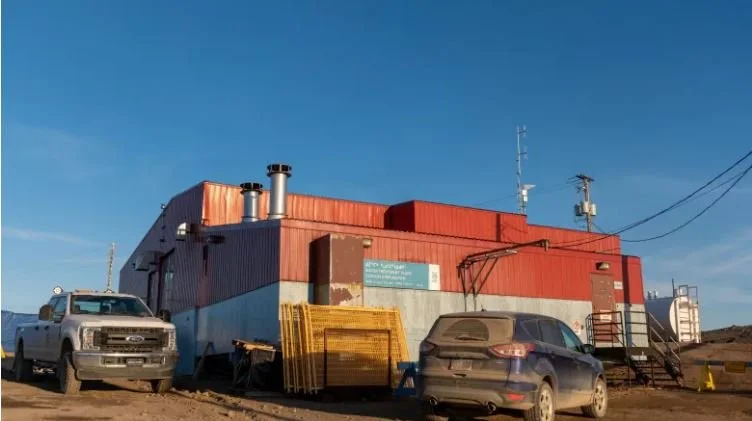Calgary officials are monitoring the city’s water supply following a sewer pipe leak in a municipality upstream on the Bow River, but the city says its tap water remains safe to drink. Alberta issued a biological hazard advisory late Saturday, stating a main sewer line break within the Town of Cochrane was causing an overland sewage discharge into the Bow at a bridge along Highway 22.
Disagreements between city, territory slowed Iqaluit water crisis response: report
A bypass system that allowed people in Iqaluit to drink the city's tap water again after it was contaminated with fuel could have come online earlier, according to a report from a third-party review of the 2021 water crisis. The report prepared by Toronto-based consulting firm DPRA for Nunavut's Department of Community and Government Services (CGS) details how disagreements between the city and territorial government affected the response to the crisis. The report was issued in May and recently provided to CBC News by CGS.
Iqaluit water treatment plant to return to service after more than a year
The City of Iqaluit says its water treatment plant is to return to service Tuesday morning, more than a year after it was shut down due to contamination. The plant was initially shut down in October 2021 after fuel was detected in the city's water supply. A do-not-consume order was lifted in December of that year, but less than a week later it was discovered the water was contaminated by a tar-like substance.
Arizona town cut off from water using rain to flush toilets
Skipped showers and rainwater-powered toilets are among the methods an Arizona town has adopted as it battles to cope without water. Rio Verde Foothills, a suburb of Scottsdale, was cut off from the city's water supply on 1 January. The controversial move left hundreds without access to running water, prompting residents to file a lawsuit demanding that services be restored. Scottsdale argues that it bears no responsibility for Rio Verde.
Iqalummiut get a break on November water bills
Iqalummiut will not have to pay their water bills for the month of November as city councillors voted in favour of providing a 100 per cent rebate due to the water emergency. The move will cost the City of Iqaluit approximately $1.7 million, money council hopes the Government of Nunavut will cover. The Government of Nunavut had imposed a do-not-consume water advisory from Oct. 12 to Dec. 10 due to fuel contamination in the city’s water supply.
Military suspends Iqaluit water operation after wind damages tent
The Canadian military has suspended its operation to pump potable water from the Sylvia Grinnell River during the city’s ongoing water emergency, spokesperson Maj. Susan Magill says. The call was made on Tuesday, after wind gusts of up to 100 km/h on Monday snapped the frame of a tent that was covering the tanks used for holding purified water along the river. “Right now, everything is at a standstill,” Magill said Wednesday. The city and Government of Nunavut ordered residents not to drink the city’s water on Oct. 12, after people complained of a fuel-like smell coming from their taps. It was later confirmed diesel fuel had contaminated the city’s water supply.
Cornwall Council hears of serious vulnerability to city’s water supply
Cornwall City Council received a report from EVB Engineering at a special meeting on Monday, Nov. 1 about a potential vulnerability to the city’s water supply and solutions on how to address the problem. The water received at the City of Cornwall’s Water Purification Plant (WPP), located on Second St. W., is taken from the St. Lawrence River through an intake pipe located west of the R.H. Saunders Dam in the city’s west end. That pipe is roughly 65-years-old and is reaching the end of its service life. Even if it were not so old, the fact that the water plant has only one intake pipe was identified as a vulnerability in the system.
City of Iqaluit says historical fuel spill likely source of drinking water contamination
An Iqaluit city official told CBC News that an underground fuel spill found near the water treatment plant could explain why the city had to declare an emergency due to fuel-contaminated drinking water. "The team located an underground spill that showed signs of historic fuel adjacent to the water treatment plant in an inaccessible, below-ground void," Amy Elgersma, Iqaluit's chief administrative officer, told Mary Tatty, host of CBC's noon hour program, Nipivut.









